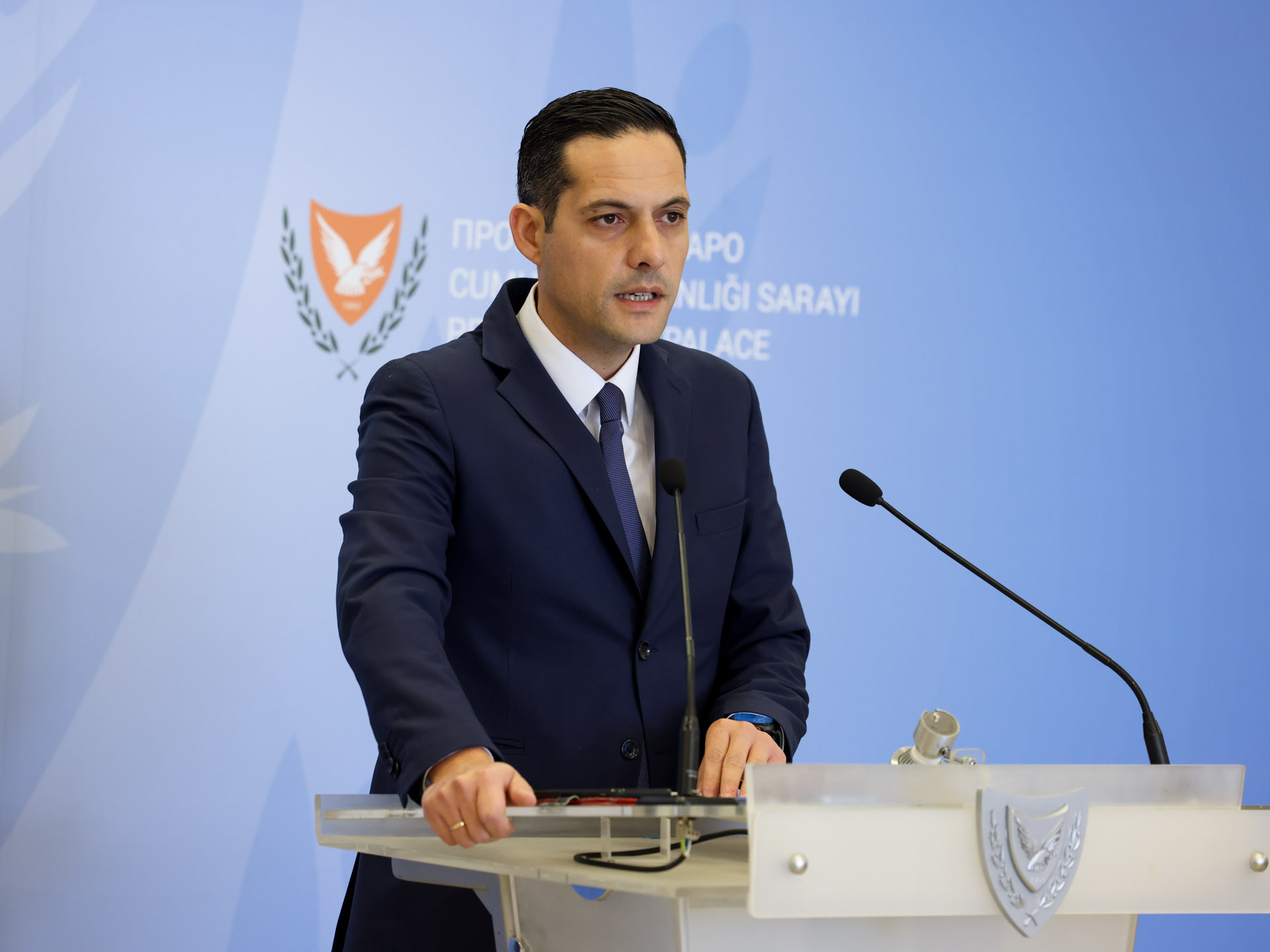The United Nations must “avoid equating” the actions taken by Cyprus’ two sides in the island’s buffer zone in Secretary-General Antonio Guterres’ coming report regarding the situation on the island, government spokesman Konstantinos Letymbiotis said on Saturday.
The report is expected to be published in the coming week.
“We expect the relevant UN reports to accurately and objectively reflect the real facts, avoiding equating the defensive actions taken by the Republic with the military violations carried out by the occupying Turkey. Full compliance with all Security Council resolutions is crucial for the restoration of trust and legitimacy,” he said.
He added that “despite the challenges, we remain unwaveringly committed to a peaceful resolution to the Cyprus problem and will continue to undertake initiatives which can contribute to substantial progress.
“We call on everyone to demonstrate the necessary political will to create the conditions which will allow for the resumption of negotiations, with the aim of a comprehensive solution which will guarantee peace, stability, and prosperity on the island.”
It is expected that Guterres will recommend that the UN peacekeeping force in Cyprus’ mandate to be renewed for another year, with its mandate set to expire on January 31. Additionally, the report typically contains comment on the events of the previous six months on the island.
Independent thinktank Security Council Report, which documents actions taken by the UN Security Council, highlighted former UN envoy Maria Angela Holguin’s open letter written at the end of her tenure as a “key development” in the most recent reporting period.
In that letter, she said her time as envoy had “focused on a constant search for paths that lead to generating trust between the parties”, and that it is now “important to move away from solutions that in the past have created expectations that were not met and led to greater disagreements and frustrations”.
“Now, we must think differently, remaining convinced that a common future would bring great opportunities to all Cypriots,” she said.
She said that based on her experiences as envoy and “after extensively researching the island’s history”, she has concluded that “too many years have been spent in confrontation; too much time blaming the other side.”
“The status quo has created greater distance and lack of knowledge of the other, and this grows with each passing day. As a mechanism to avoid further frustration, without a doubt linked to the failed negotiation attempts, many people seem to have surrendered to the impossibility of changing the current situation,” she said.
Additionally, the thinktank highlighted the informal dinner attended by President Nikos Christodoulides, Turkish Cypriot leader Ersin Tatar, and Guterres as another key development.
The thinktank said Guterres had at the dinner “encouraged both leaders to identify ways to bridge their differences and rebuild trust, with the aim of advancing toward a settlement”, and also drew attention to plans for Christodoulides and Tatar to meet to discuss the opening of new crossing points.
However, three months have now passed since that meeting and the pair yet to meet despite both Christodoulides and Tatar publicly expressing their willingness to do so – a fact which may now cause frustration for Guterres.
The thinktank also highlighted as a key development plans for an enlarged meeting to be held on the Cyprus problem, involving the island’s three guarantor powers, Greece, Turkey, and the United Kingdom.
It added that Unficyp chief Colin Stewart had in December spoken of “glimmers of hope” on the Cyprus problem, given the mutual interest in the idea of an enlarged meeting, while also making reference to UN under-secretary-general for peacebuilding Rosemary DiCarlo’s planned visit to the island in the early part of the year.
The thinktank said the Security Council “could take several actions to revive the peace process” in Cyprus, including “encouraging the parties to approach negotiations based on ‘engagement without recognition’ to facilitate the resumption of negotiations”.
“It could also consider taking a more proactive approach to stimulate the negotiation process by exploring a change in Unficyp’s mandate,” it said, adding that such a change could entail “downsizing the mission”.
This, it said, “could signal a shift towards reducing dependency on external peacekeeping forces, thereby emphasising the need for the parties to take ownership of the process.
“Such a move could apply subtle pressure by underscoring the unsustainable nature of the status quo and encouraging the parties to work towards a long-term solution. By tying adjustments in Unficyp’s mandate to a clear exit strategy, the Security Council might create a sense of urgency for the parties to reach an agreement.”
The thinktank also made reference to Greece taking a seat at the UN Security Council as a non-permanent member at the start of January, highlighting the country as a “key stakeholder” and one of Cyprus’ guarantor powers.
Greek Foreign Minister Giorgos Gerapetritis had upon his country’s taking of the Security Council seat promised his country would use it to “keep the Cyprus problem on the UN’s active agenda”.
“In solidarity with the Republic of Cyprus, we support the UN Secretary-General [Antonio Guterres’] efforts and look forward to contributing constructively” towards the resumption of dialogue on the Cyprus problem,” he said.
That dialogue, he said, must be geared towards “a just, sustainable, and workable solution to the Cyprus problem within the framework of Security Council resolutions”.
Those resolutions foresee a bizonal, bicommunal federal solution to the Cyprus problem with political equality between its Turkish Cypriot and Greek Cypriot communities.
“As have stated in the past, in a world full of divisions, a united European Cyprus, beyond the conditions of prosperity it would create for its citizens, would constitute an extremely powerful universal symbol.”






Click here to change your cookie preferences